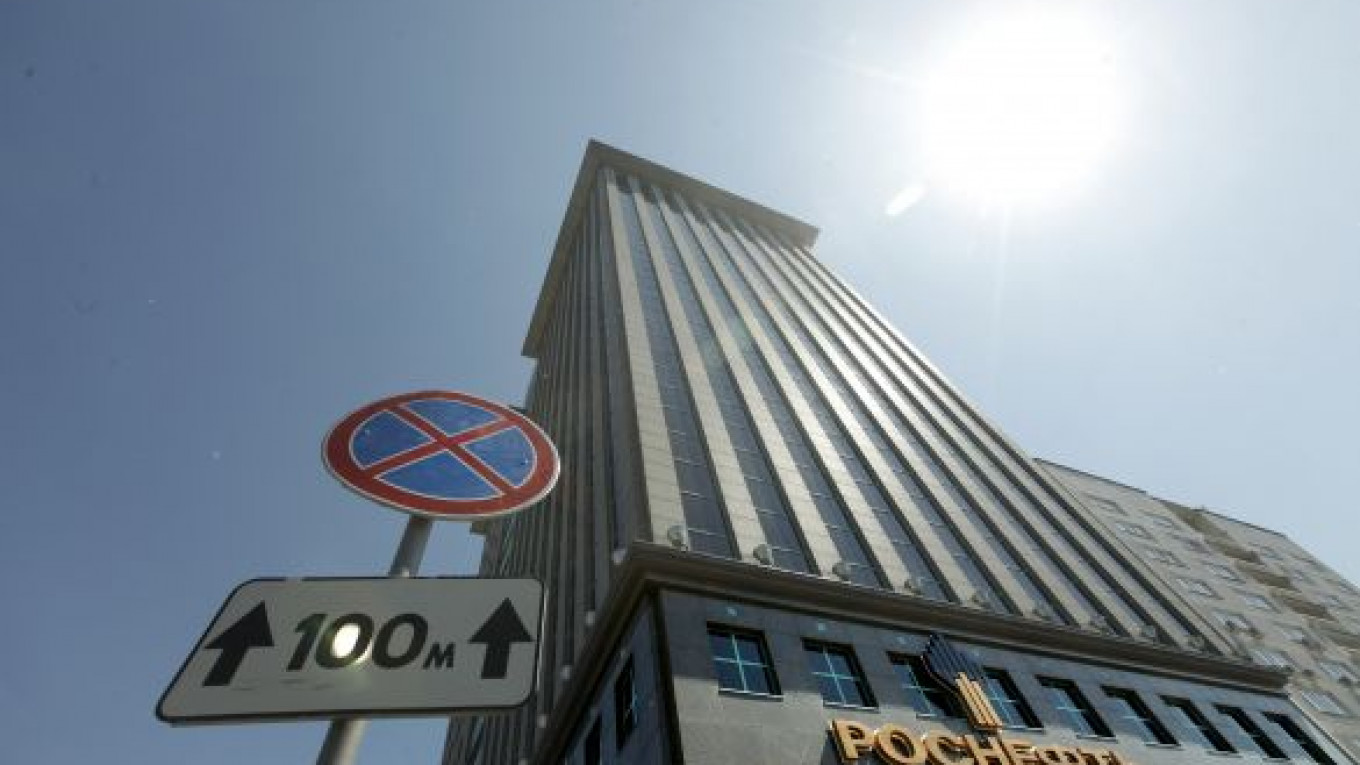Less than a year has passed since the government made new privatization plans for the country's major oil assets, and the strategy is now to add Transneft and Zarubezhneft to the list and to sell off Rosneft, which has been beefed up with the assets of Yukos, in its entirety.
First Deputy Prime Minister Igor Shuvalov's proposal is revolutionary. The government proposes to sell off Rosneft and Zarubezhneft by 2017 and only maintain a golden share in the oil majors. Russia could by 2017 have just one state oil company — Gazprom Neft.
Jailed former Yukos boss Mikhail Khodorkovsky, due for release in the fall of 2016, may see his former assets almost completely out of state hands. Foreign companies could obtain access to Russia's huge offshore hydrocarbon reserves.
Rosneft became the No. 1 oil producer and refiner in Russia (112 million tons of crude in 2010 with a 121 million-ton target for 2011) after buying Yukos' assets. Rosneft then held an initial public offering in Russia and on the London Stock Exchange, receiving about $10.6 billion for 15 percent of shares. The price per share was $7.55. BP purchased 1.4 percent of the shares.
As of Aug. 1, 2011, state-owned Rosneftegaz owned 75.2 percent of Rosneft. Another 9.5 percent are treasury shares owned by Rosneft subsidiary RN-Razvitiye, which bought 9.4 percent in Rosneft during the sale of Yukos assets. The Rosneft free float is 15.3 percent, of which 11.8 percent are Global Depositary Receipts.
A privatization program was announced in November 2010 proposing the sale of 25 percent minus one share of Rosneft by 2015. The government said it would sell 15 percent on the open market, and 10 percent minus one share was to be used for share swaps.
"We reckon that after 2015 Russia's share of Rosneft can be reduced and we may relinquish control over this company," Shuvalov said at the time.
Russia agreed to transfer 9.5 percent of its shares to BP in exchange for 5 percent of the British oil company in mid-January 2011. That would have given BP 10.8 percent of Rosneft if the Russian shareholders of TNK-BP had not blocked the deal, which involved BP's inclusion in Rosneft Arctic projects.
Rosneft president Eduard Khudainatov said in April 2011 that management would tell the government not to privatize for three to five years.
"It is better to sell in 3-4 years with double the capitalization than to sell now and receive less," he said.
Even though President Dmitry Medvedev spoke in favor of a more aggressive privatization policy a few months later at the St. Petersburg Economic Forum, Rosneft is unlikely to be ready for large-scale privatization by 2012. The company is expecting some offshore tax breaks from the government to make its projects more profitable and the company more expensive.
The Finance Ministry proposed in summer 2010 that a 27.1 percent stake in Transneft be sold, reducing the government share to a controlling stake. Transneft chairman Nikolai Tokarev and Energy Ministry Sergei Shmatko were firmly against the proposal, and in the fall Shmatko told the press that the government would not discuss Transneft privatization for another five years.
"The risks that would arise from the sale of the shares are unjustified," the minister said. He said the sale of only 3 percent of Transneft shares had been considered.
Tokarev said that if Transneft shares were sold, oil companies would start to lobby their interests in gaining access to pipelines.
The government owns 100 percent of voting shares in the company and 75 percent of issued shares. Private investors own the other 25 percent. It was reported earlier that Interros and structures controlled by Basic Element are the major holders of preferred shares.
Now the Finance Ministry's position has won out, and the government proposes to reduce Russia's stake to 75 percent plus one share, beginning in 2012.
There has been almost no talk about Zarubezhneft privatization before. The privatization plan approved in fall 2010 did not mention the company, because, as Shuvalov said, Russia had to verify whether it was bound by obligations to its foreign partners. Zarubezhneft's main partner is Vietnamese state company PetroVietnam.
Zarubezhneft chairman Nikolai Brunich said last week that the company is planning an IPO after 2013 if the government's privatization plan does not change.
Soon Zarubezhneft, after merging with Arktikmorneftegazrazvedka, will obtain the right to work on Russian offshore operations, which foreign companies cannot access without establishing joint ventures with Russian companies. Only Rosneft and Gazprom currently have such rights.
Medvedev signed a decree at the end of April 2011 on the transfer of Arktikmorneftegazrazvedka shares to Zarubezhneft. 100 percent minus one share in the company will be paid into Zarubezhneft's charter capital as payment for an additional share issue.
A Message from The Moscow Times:
Dear readers,
We are facing unprecedented challenges. Russia's Prosecutor General's Office has designated The Moscow Times as an "undesirable" organization, criminalizing our work and putting our staff at risk of prosecution. This follows our earlier unjust labeling as a "foreign agent."
These actions are direct attempts to silence independent journalism in Russia. The authorities claim our work "discredits the decisions of the Russian leadership." We see things differently: we strive to provide accurate, unbiased reporting on Russia.
We, the journalists of The Moscow Times, refuse to be silenced. But to continue our work, we need your help.
Your support, no matter how small, makes a world of difference. If you can, please support us monthly starting from just $2. It's quick to set up, and every contribution makes a significant impact.
By supporting The Moscow Times, you're defending open, independent journalism in the face of repression. Thank you for standing with us.
Remind me later.






